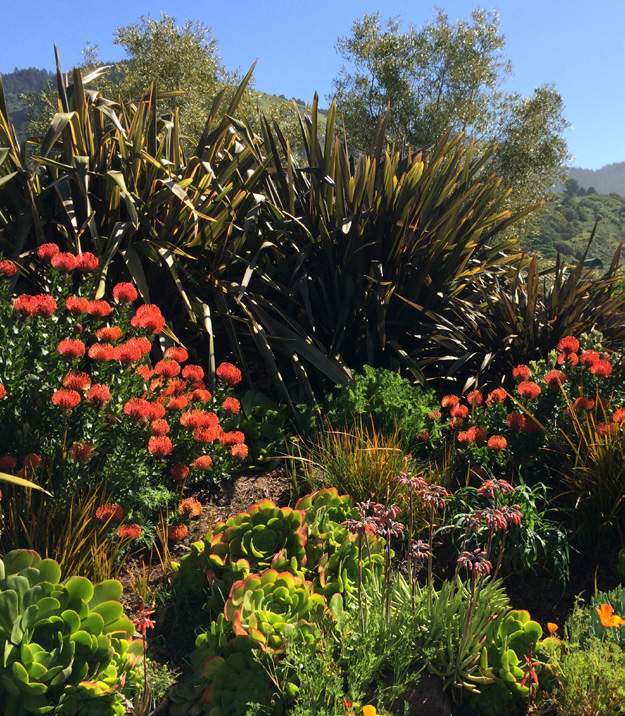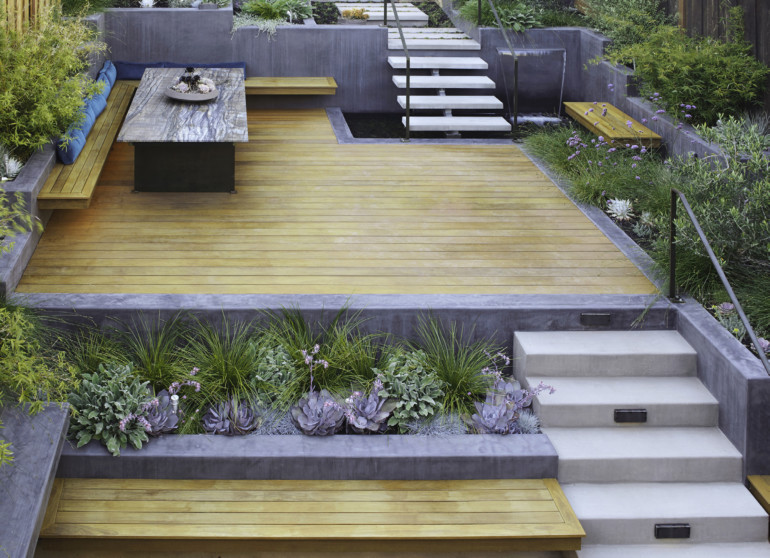Despite an abundantly rainy winter, Marin residents continue to be mindful regarding smart landscape water use. Fortunately for gardeners, many water-wise tactics are low maintenance and many drought-tolerant plants look quite attractive. With those benefits in mind, here are some water-smart gardening techniques and plant suggestions to enhance your garden while protecting your water bill.
THE DETAILS
Permeable Paths
When installing paths and patios, consider using materials like decomposed granite and gravel that allow water to drain into your garden as opposed to into storm drains.
Lose the Lawn
Consider replacing your lawn with a drought-tolerant ground cover or native no-mow fescue blend.
Go Native
If you plant local drought-tolerant flora like ceanothus and manzanita, the butterflies and bees will thank you.
Be Direct
You can channel rainfall where it’s most needed by installing a dry streambed — a ribbon of small and medium stones in the pattern of a natural stream.
Time It
Install a drip irrigation system with a smart irrigation timer that uses info about the weather, your plants and soil to give your garden a customized, targeted amount of water.
Be Colorful
Plan for year-round visual interest by planting a variety of grasses, perennials, shrubs and succulents that survive on limited water but provide structure and contrast.

Mulch
A layer of natural mulch over garden beds reduces both evaporation and weeds.
Natural Soils
Make sure your soil is healthy by adding organic compost and organic fertilizers.
Rock It
Incorporate rocks and boulders of all sizes into your landscape for height and structure and to define spaces.
WATER-WISE PLANTS
- Westringia
- Grevillea
- Fremontodendron
- Agave
- Salvia
- Yarrow
- Agastache
- Yucca
- Euphorbia
- Muhlenbergia

TIPS FROM THE EXPERT
“Mass drought-tolerant plants together — for example, a swath of echeveria under a swath of upright rosemary — and pay attention to how different leaf shapes reference and highlight each other,” says Beth Mullins, owner of Growsgreen Landscape Design in San Francisco. She also recommends using gravel and permeable hardscapes to add texture to a garden and conserve water.


